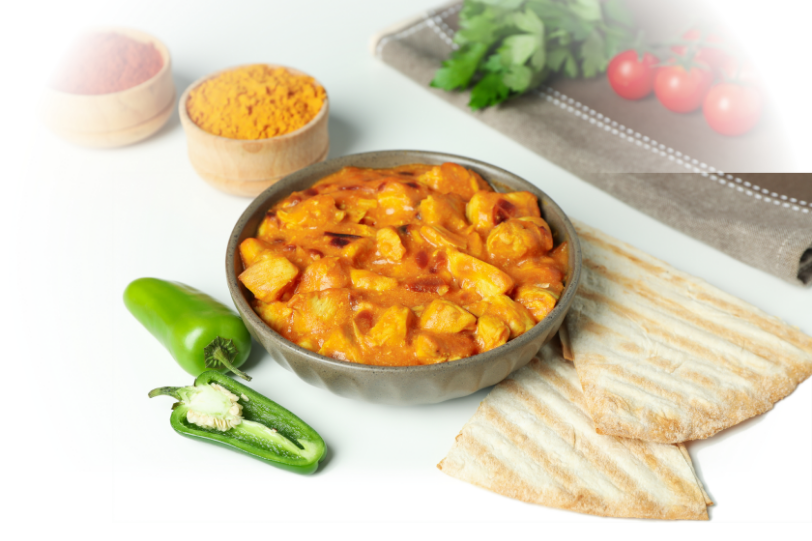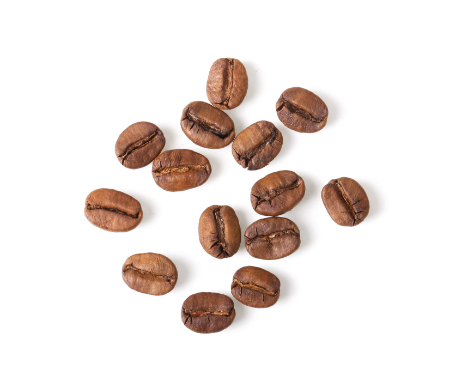The Path from Food Innovation to Production: The Essential Journey
Introduction: Navigating the Food Innovation LandscapeIn the competitive world of food production, the path from a novel concept to a shelf-ready product is a pivotal journey. While innovation is the lifeblood that propels the industry forward, the actual pathway to production is a less-trodden and intricate terrain that many find daunting. It is a multifaceted expedition that demands not only creative prowess but also strategic navigation through the complexities of bringing a product to market.Understanding the Innovation to Production PathwayThis journey encompasses more than just the creative process—it's a critical transition from the drawing board to the consumer’s table. The pathway is riddled with potential obstacles, from the initial conception to the logistics of mass production.Challenge 1: Concept Realization. It’s one thing to imagine a new food product, but another to realize it in a form that meets market expectations and regulatory requirements.Challenge 2: Resource Optimization. Efficient use of resources is essential, yet often, businesses struggle to allocate these effectively throughout the development process.Challenge 3: Seamless Integration. Coordinating the many cogs of the production machine—from R&D to packaging and distribution—is an intricate operation that requires a masterful approach.Recognizing these challenges, Cibus Nexum has crafted a method that aids food companies in navigating these complex stages with finesse. The essence of this strategy is to provide a clear and coherent progression that aligns innovative ideas with practical production solutions, ensuring that new food products are not only conceived but also successfully brought to market.Common Pitfalls in the Food Production Innovation JourneyFood production innovation is an intricate process. Despite best intentions, companies often encounter hurdles that can hinder progress. Here are some of the most common challenges that need careful navigation:Underestimating the Research Phase:Skipping essential market research can lead to misaligned product development.Neglecting consumer trends may result in innovations that don’t resonate with target audiences.Overlooking Regulatory Compliance:Ignoring food safety and regulatory requirements can lead to legal complications.Underestimating the time and resources needed for compliance can delay product launches.Misjudging Resource Allocation:Inadequate budgeting for development phases can lead to financial shortfalls.Insufficient investment in the right talent and technology can compromise product quality.Failing to Plan for Scalability:Not considering scalability in the initial stages can limit future growth opportunities.Overlooking the potential need for expansion can lead to costly overhauls down the line.Ineffective Partnership Selection:Partnering with suppliers or manufacturers that don’t align with company values can affect the end product.Lack of due diligence in selecting partners can result in subpar production standards.Neglecting the Importance of Packaging:Overlooking packaging design can affect product appeal and functionality.Failing to consider sustainable packaging options can impact brand reputation and environmental compliance.Lack of Clear Communication:Miscommunication between departments can cause inconsistencies and delays.Ineffective transfer of knowledge from R&D to production can result in execution errors.Underestimating Time-to-Market:Unrealistic timelines can lead to rushed decisions and compromised product launches.Not accounting for potential roadblocks can affect market entry and competitive advantage.Insufficient Quality Control Measures:Inadequate testing phases can allow defects to go unnoticed until it’s too late.Failing to establish rigorous quality control can tarnish brand reputation and customer trust.By recognizing and addressing these challenges early on, food production companies can set a solid foundation for innovation and increase their chances of market success.A Transformative Approach to Innovation and ProductionCibus Nexum offers the FoodFlow Method as a transformative solution to the traditional challenges of food production innovation. This method is tailored to navigate the complex journey from concept to consumer, ensuring that every innovative idea is given the best chance to thrive in the competitive market.Advantages of the FoodFlow Method:Strategic Development: Aligns your product development with market needs and consumer preferences.Resource Efficiency: Maximizes your resources, ensuring that each aspect of the product journey is optimized for efficiency and effectiveness.Quality Assurance: Integrates quality control throughout the process, from conception to production, guaranteeing a superior final product.Market Alignment: Ensures that every product is designed with the end consumer in mind, resulting in higher market acceptance and success.The FoodFlow Method not only addresses common pitfalls but also provides a sustainable advantage, leading to improved results such as faster time-to-market, higher product quality, and better alignment with consumer expectations.The FoodFlow Method ProcessThe process of the FoodFlow Method is a detailed, step-by-step approach that Cibus Nexum uses to guide your product's development:Design: We begin by defining the scope and requirements of your product, aligning with your brand’s core values and market needs.Find: Our extensive network is utilized to identify potential manufacturing partners, ensuring compatibility with your unique requirements.Onboard: We engage with shortlisted candidates, conducting thorough discussions and negotiations, culminating in a partnership that aligns with your business’s goals.Launch: In the final phase, we set up an action plan with the chosen co-manufacturer, focusing on the first production run and ensuring a successful product launch.Each phase of the FoodFlow Method is interconnected, ensuring that the entire operation is synergistic and greater than the sum of its parts. For an in-depth understanding of how the FoodFlow Method can specifically benefit your project, and to explore the detailed process from start to finish, visit our FoodFlow Method page.Case Studies: FoodFlow Method in ActionThe FoodFlow Method by Cibus Nexum has been instrumental in the success of numerous food innovation projects. Below are illustrative examples based on realistic scenarios that demonstrate its practical application and effectiveness:Case Study 1: Verdant Sausage Co. - Scaling Up Vegetable Sausage ProductionBackground: Verdant Sausage Co., a visionary company, crafted a unique recipe for a plant-based sausage. Their challenge was to upscale production while safeguarding their intellectual property and ensuring scalability for future growth.Approach: Cibus Nexum applied the FoodFlow Method, strategically segmenting the production process. The basic ingredients, a premix vital to their IP, were produced by a separate entity. The actual sausage production was then outsourced to a manufacturer capable of bulk production. To streamline scalability and market reach, further processing and packaging were distributed among various regional partners.Outcome: This approach not only protected Verdant Sausage Co.'s IP but also established a flexible production model. As a result, they efficiently met growing market demand and maintained product consistency across regions.Case Study 2: InnovMeat Start-Up - Commercializing Disruptive Meat Alternative TechnologyBackground: InnovMeat, a startup, developed groundbreaking technology for a meat alternative product. Despite the innovative machine, recipe, and process, they lacked a production facility and faced investor hesitancy in building a factory due to associated risks.Approach: Embracing the FoodFlow Method, Cibus Nexum innovatively sourced partners who could integrate InnovMeat's technology into their existing infrastructure. This "black box" approach allowed InnovMeat to operate their machinery with their own operators within the comanufacturer's facility, while the comanufacturer handled all ancillary logistics.Outcome: InnovMeat successfully transitioned to commercial production without the capital expenditure of a new facility. This collaborative approach mitigated risk, maximized resource efficiency, and allowed InnovMeat to swiftly bring their product to the competitive market.These case studies, though fictional, are based on plausible scenarios and showcase the versatility and problem-solving capabilities of the FoodFlow Method in addressing complex production challenges within the food industry. For more detailed insights into how the FoodFlow Method can be tailored to specific needs, visit our comprehensive guide on the FoodFlow Method page.Cibus Nexum: Your Gateway to Tailored Food Production ExcellenceAt Cibus Nexum, we are not just consultants; we are connectors, enablers, and executors in the food production landscape. Our core expertise in sourcing and manufacturing is amplified by our unparalleled ability to form strategic alliances.With direct access to a network of CEOs and industry leaders, we ensure rapid and warm introductions, streamlining the process of innovation to production. Our in-house strengths are complemented by a coalition of specialized partners, handpicked to enhance our service offerings in R&D, regulatory adherence, and supply chain optimization.Our approach is not one-size-fits-all. It is a symphony of our expertise and our extended network's capabilities, all harmonized through the FoodFlow Method to address your specific challenges. Whether it is crafting the initial concept or orchestrating the complexities of mass production, we bring together the best in the business to create solutions that resonate with your brand and marketplace.We believe in transparency and partnership. Our track record is not just built on our accomplishments but also on the successes of our clients, achieved through this collaborative approach. Cibus Nexum is where innovation meets execution, delivering not just a service but an enduring competitive edge.Tailored Services and Offerings by Cibus NexumOur services at Cibus Nexum are meticulously designed to address the multifaceted challenges of food production innovation. Here's how we tailor our offerings to ensure your success:Specific Services Tailored to Your Needs:Comprehensive Sourcing Solutions: We navigate the global market to source high-quality ingredients and materials that align with your product's needs and ethical standards.Manufacturing Matchmaking: Our expertise in manufacturing extends to matching your project with the ideal production facilities, ensuring efficiency, quality, and scalability.Strategic Network Connections: With Cibus Nexum, you gain access to our exclusive network, offering warm introductions to key industry players, from suppliers to potential retail partners.Customized Production Strategies: We develop tailored production strategies that consider every detail, from initial concept to final market delivery.Solving Challenges with Our Services:Challenge: Scaling Production Service: Our manufacturing matchmaking and network connections provide you with the resources to scale up production without compromising quality or efficiency.Challenge: Ensuring Product Quality Service: Through our comprehensive sourcing solutions, we ensure that only the best ingredients and materials are used, maintaining the high standard of your product.Challenge: Market Alignment Service: Our customized production strategies are developed with a deep understanding of market trends and consumer demands, ensuring your product is well-positioned for success.Challenge: Time-to-Market Service: Leveraging our network, we expedite the process from development to production, significantly reducing time-to-market.At Cibus Nexum, each service we offer is a piece of a larger puzzle—when put together, they form a complete picture of success for your food production venture. Our tailored services are not just solutions but are assurances that every challenge along the innovation to production pathway can be effectively addressed.Cibus Nexum’s service offerings are purposefully crafted to turn the complexities of food production innovation into streamlined, successful projects. Our commitment is to provide you with a strategic advantage in the competitive food industry landscape.The Crucial Role of Preparation and Planning in Food ProductionAt Cibus Nexum, we emphasize that the success of bringing an innovative food product to market relies heavily on meticulous preparation and strategic planning. This foundational stage is critical in implementing the methods we've discussed and ensuring a smooth transition through the FoodFlow Method's stages.The Importance of Preparation and Planning:Defining Clear Objectives: A thorough preparation phase helps in setting clear and achievable objectives, ensuring all stakeholders share a unified vision for the project.Risk Assessment and Mitigation: Planning allows for the identification of potential risks and the development of strategies to mitigate them before they impact the project.Resource Allocation: Careful planning ensures that resources, including time, budget, and human capital, are allocated efficiently, preventing wastage and optimizing productivity.Timeline Optimization: A detailed plan includes a realistic timeline that accounts for each stage of the development and production process, ensuring timely market entry.Quality Control: Preparation includes establishing quality control measures from the outset, setting high standards that persist through to production.Implementing the FoodFlow Method with Precision:Stage-by-Stage Execution: With a well-crafted plan, each stage of the FoodFlow Method, from Design to Launch, can be executed with precision, aligning closely with the project's objectives.Flexibility Within Framework: While planning is detailed, it also allows for flexibility to adapt to unforeseen changes, maintaining project fluidity without compromising on deliverables.Continuous Monitoring and Adjustment: Ongoing monitoring and the ability to adjust plans as necessary are built into the preparation phase, ensuring the project remains on track.Preparation and planning are not just preliminary steps but are integrated throughout the Cibus Nexum FoodFlow Method. This approach ensures that every innovative food product we guide from conception to market is done so with a strategy designed for success.Preparation and planning are the bedrock upon which the FoodFlow Method stands, ensuring that each project is carried out effectively, efficiently, and with the highest chances for success.Why Specialized Guidance Matters: The Consequences of a One-Size-Fits-All ApproachIn the intricate dance of food production, each step counts. Cibus Nexum’s specialized approach through the FoodFlow Method is designed to anticipate and navigate the complexities of the industry. Straying from such a tailored path can introduce significant risks and drawbacks.The Perils of Overlooking Specialization:Misalignment with Market Demands: Without the deep industry insight that a specialized approach provides, products may be developed that don’t align with current market trends and consumer expectations, leading to poor sales performance.Inefficiencies in Production: A non-specialized approach can lead to operational inefficiencies, as generic methods may not account for the unique challenges and opportunities present in food production, resulting in wasted resources and increased costs.Compromised Quality and Safety: The absence of specialized knowledge can result in overlooking critical quality and safety standards, potentially leading to recalls or reputational damage.Delayed Time-to-Market: Without a specialized approach, the route from concept to shelf can be fraught with delays due to a lack of streamlined processes and industry-specific know-how.IP and Competitive Edge Risks: A generalized method may not provide the nuanced strategies required to protect intellectual property effectively, which can erode a company’s competitive edge.Scalability Challenges: Without the foresight that specialization brings, scaling production to meet market demands can become a hurdle, affecting the ability to capitalize on growth opportunities.Cibus Nexum’s Specialized Advantage:Choosing Cibus Nexum’s specialized approach means opting for a method that is intricately designed for the food production industry. Our FoodFlow Method mitigates these risks by providing a bespoke solution that ensures your product is developed and brought to market with the expertise, care, and strategic planning that it deserves.The specialized approach of Cibus Nexum through the FoodFlow Method is not just about avoiding risks; it’s about proactively creating opportunities for success in the competitive landscape of food innovation.Embrace the Future of Food Production with Cibus NexumAs we've navigated through the essentials of innovative food production, it's clear that the journey from concept to consumer is intricate and filled with potential challenges. Cibus Nexum stands ready with the FoodFlow Method, a specialized and strategic approach designed to streamline this process and enhance the success of your food innovation endeavors.SummaryCibus Nexum offers:Expert Sourcing and Manufacturing: Connecting you with the best partners for your unique product needs.Tailored Solutions: Utilizing our FoodFlow Method to address your specific challenges in food production.Strategic Network Access: Leveraging our extensive network for quick, effective introductions and collaborations.Quality and Compliance Excellence: Ensuring that your product exceeds market standards and consumer expectations.Partner with Us for Your Food Production BreakthroughAre you ready to transform your innovative food ideas into market-ready successes? Cibus Nexum is your partner in this journey, providing the expertise, network, and tailored strategies to bring your vision to life.Don't let the complexities of food production innovation hold you back. Reach out to us, and let's discuss how we can support your project with the precision and care it deserves.Connect with Cibus Nexum today and take the first step towards redefining excellence in food production.















